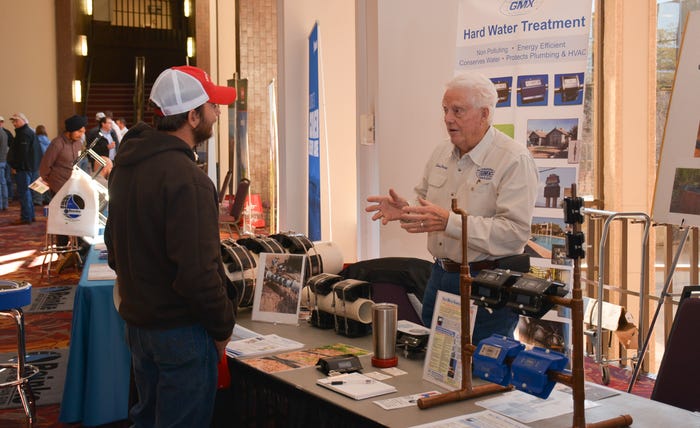
More than 200 people attended the Texas Alliance for Water Conservation's 5th annual Water College this month in Lubbock, Texas. The free Water College featured guest speakers such as Parmer County grower Kelly Kettner who discussed the role of carbon, cover cropping and residue in conserving water in a large-acre farming system and how that interacts with the soil microbes. Joining him on stage was Jeff Miller with Forefront Agronomy who discussed the benefits of variable rate irrigation in West Texas, specifically on Kettner's 2018 cotton crop.
"What we were trying to do is compare a grower's standard, what guys have normally done to schedule their irrigation, versus variably applying water," says Miller, who drew up a prescription for Kettner based on soil parameters and the crop he was growing and then split the pivot into zones where the sprinkler could be sped up or slowed down to adjust the application rate. "Not every one of these fields is table-top flat. There's some variation across the field. We also have a prevailing southwest wind that we need to deal with, so if there's a way we could apply our water differently and still get the biggest bang for our buck, that's our premise."
Over the last two years, through Miller's partnership with TAWC's producer projects, he says they've seen a 150-pound increase when variable rate technology is used, applying a half-inch less of water, "which doesn't sound like much but to get 150 pounds out of that is pretty effective."
Looking into the future, while grower profitability is important, Miller says if a grower can save water each year and extend the life of the aquifer, "whenever you start thinking about sustainability, we've got to make money to stay here but we've also got to be here as long as we possibly can. Looking at technology like this is allowing us to strive for these goals."
Conference attendees also heard from Shawn Wade, Plains Cotton Growers, about helpful online tools, such as those found on the TAWC website: a heat unit calculator, Mesonet weather data and a cotton water use estimator to name a few.
Also on tap were John Duff, National Sorghum Producers; President Dr. Lawrence Schovanec, Texas Tech University; Jesse Daystar, Cotton Incorporated; Kathleen Jackson, Texas Water Development Board; and Brian Bledsoe, chief meteorologist and climatologist from Colorado Springs, Co.
About the Author(s)
You May Also Like






